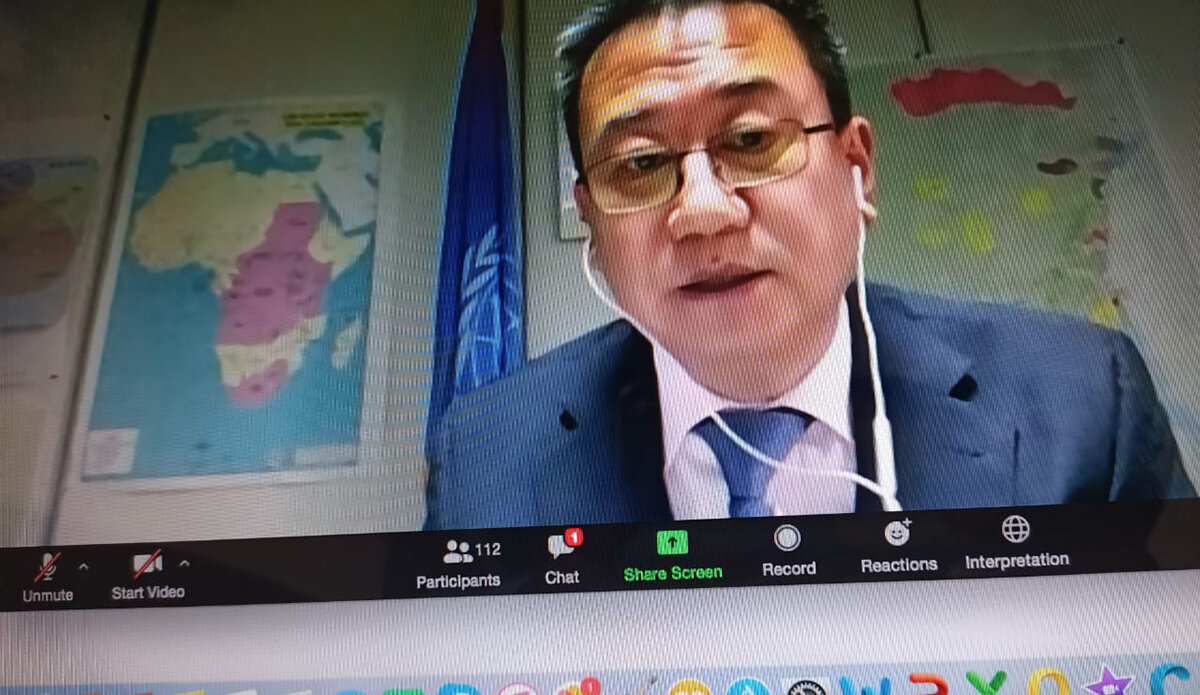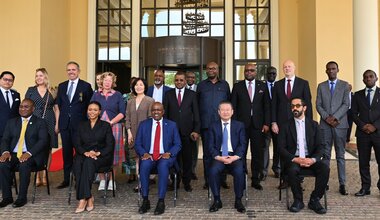UN Security Council meets to discuss best ways to tackle illegal trade in Africa’s Great Lakes region mineral wealth to boost peace, security and development
Nairobi, 15 July 2020 – Security Council members held a virtual meeting to discuss illegal trade in natural resources in the Great Lakes region and map strategies of improving transparency to help consolidate peace and security.
Under the theme "The Illegal Exploitation of Natural Resources in the Great Lakes Region: How to Translate the Ongoing Positive Regional Momentum into New Options for Conflict Prevention, Management and Reform", participants discussed new options for peace-building and economic development with respect to the exploitation of natural resources in the Great Lakes region.
The meeting was co-hosted by Council members Belgium, South Africa and the United States, along with the Democratic Republic of the Congo (DRC).
The illegal exploitation of natural resources, especially of gold and coltan, has been recognized as one of the main underlying causes and effects of instability in eastern Democratic Republic of the Congo (DRC), which has seen conflict for several decades, often involving a variety of national, regional, and international state and non-state actors.
According to the organisers of the meeting, several high-level initiatives by President Felix Tshisekedi and other regional leaders, coupled with the political and military momentum, have created space for new economic initiatives, including the fight against the illegal exploitation of natural resources, for the benefit of the Congolese people.
Organisers said that although the trade in gold and coltan remains an important source of revenue for state and non-state actors, informal and illegal trade in these minerals was hampering the consolidation of peace and security.
Participants explored ways of curbing smuggling while regional governments discussed ways to examine the desirability of the regional standardization of tariffs.
Huang Xia, the UN Special Envoy for the Great Lakes region and one of the meeting’s briefers, said the Security Council, under resolution 2502 (2019), called on his Office and MONUSCO to work with all stakeholders and reach a political solution to end the cross-border flows of armed combatants and the illicit exploitation and trade of minerals.
"I am convinced that a holistic approach across the entire value chain, upstream and downstream, should be favored in order to overcome the illicit trade in minerals from the region which has persisted for decades," Mr Xia said.
He noted that a new context conducive to the strengthening of regional integration had emerged in the Great Lakes region after President Tshisekedi took office in the DRC, adding that the recent peaceful political transition in Burundi constitutes yet another milestone to consolidate the momentum.
Other briefers included Mauricio Villafuerte of the International Monetary Fund, who spoke about the economic contribution of minerals in the DRC and the region, the fiscal regime for the mining sector and subnational revenue-sharing, and means to increase transparency and accountability.
Pascal Nyembo Muyumba, Director General of the Expertise Assessment Center and Certification of Precious and Semi-precious Mineral Substances, spoke about the challenges and perspectives from the DRC government on the exploitation of gold and coltan in the eastern DRC; and Joel Sherman, Senior Director for Compliance and Sustainability from electronics manufacturer Kemet, spoke about private sector example of how to enact due diligence, corporate social responsibility and sustainable mining practices with a focus on the coltan sector for the electronics industry.
The meeting was organised under the Arria-formula, an informal arrangement that derives its name from a Venezuelan diplomat and allows the Council members greater flexibility to be briefed about international peace and security issues.
 UN
UN





